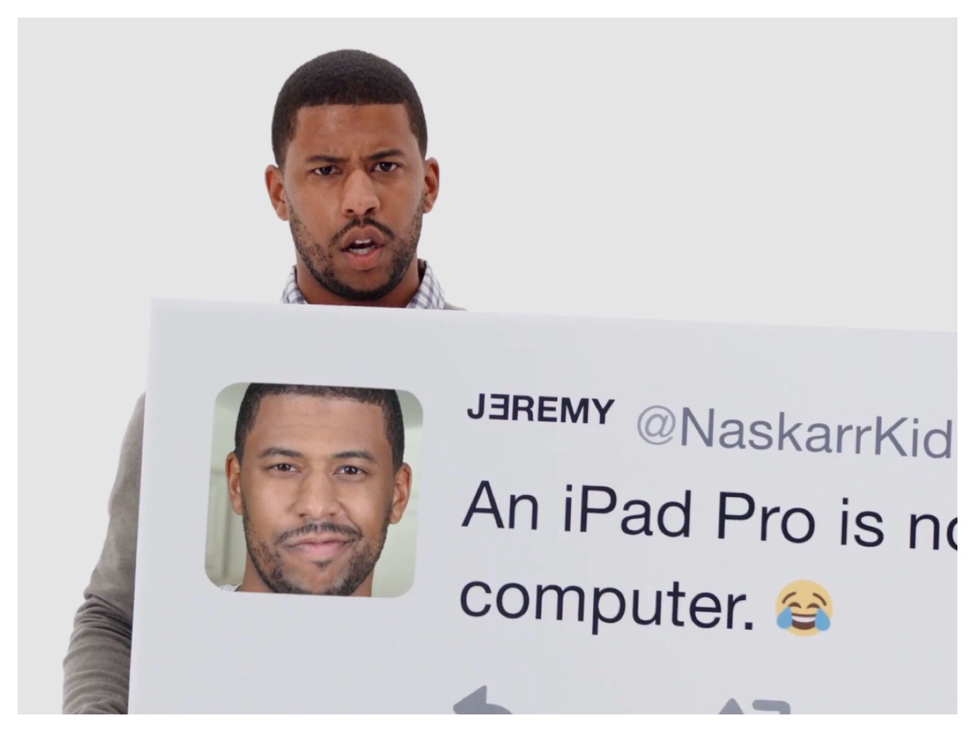I boil it down to the following formula.
Windows to Mac Switchers = MacBook to iPad Switchers
In other words, the MacBook Pro segment has a core of longtime users that is augmented by new converts from the Windows world. However, on the negative side, they are also losing a combination of their core market and many of the new users to the iPad. At the present, the new users are offsetting the lost ones.
I suspect that the following is happening:
Windows PC owners buy iPhones or have them issued at work. They fall in love with Apple quality, craftsmanship, or iOS and decide they’d like to go “all Apple” and get a MacBook Pro.
Later, still being gung-ho on Apple, they buy an iPad. Not having a background with macOS, they find the MacBook Pro clunky and unfamiliar but the iPad friendly and inviting. The MacBook Pro ends up untouched and collecting dust the majority of the time, and the iPad owner wonders why he ever needs to buy another MacBook Pro.
This is exactly what happened to me and others I know. The problem for MacBook Pros in this scenario is that eventually the iPhone will stop growing. Without the iPhone to pull in new Windows converts, the MacBook Pro will then begin its downward descent. That’s because MacBook to iPad switchers will continue on indefinitely, even after the Windows converts start to dwindle. The MacBook Pro market is like a leaky bucket with a big hole in the bottom. As soon as the water stops pouring in, it’s going to start to run dry.
I’m not anti-MacBook Pro. I think it’s the best option for people who need a serious work machine. I’m just anticipating the reality that as the MacBook Pro market shrinks, the prices for new ones will necessarily go up. I’ve seen this same scenario played out multiple times in other industries, and I can predict what will happen.
The MacBook Pro has a core market that would never consider going to iPads given today’s prices. But as MacBook Pro prices go up, even this core group is going to question why they need to spend so much. Especially if the iPad grows more capable and gets a price cut. This is what I wrote about when I said that the tablet and laptop price structures are going to flip. As prices for MacBook Pros go up, this will further depress sales. And thus starts the vicious downward spiral.
Everyone who thinks that the MacBook Pro will be a thing for a long time makes two big assumptions: one, that current pricing won’t change, and two, that iPads will forever be stunted on the software side. Both are bad assumptions.
Further, anyone who thinks that the MacBook Pro will be around for the long haul because Tim Cook or Phil Schiller said so is making a critical error. That decision is not up to Tim or Phil. That decision will be made by Apple’s customers. If people start buying Surface Pros, iPads or even plus-sized iPhones in lieu of laptops, then by necessity, Apple’s executive management will be forced to adapt to the new reality. Customers will vote with their dollars, and Tim Cook et al will be forced to follow. That’s why we have iPhone screens larger than 3.5". The success of larger Android phones ensured that outcome.
I don’t doubt that Apple’s management team is committed to the MacBook Pro. But I also don’t doubt that they have contingency plans if the MacBook Pro starts to go into a slow downward descent. They’d be negligent if they didn’t plan for that scenario, because it’s a very real possibility. Or maybe keeping the MacBook Pro is the contingency plan should their thoughts on the iPad prove to be wrong. Either way, they don’t want to burn any bridges with the core MacBook Pro users.
I see the Macbook Pro as being saved by the iPhone in the short term. But this situation won’t last forever. The question is how long water keeps pouring into the bucket. If Apple has roughly 20% of global market share, I wouldn’t say that the situation for the iPhone is dire. But going forward, growth will be more difficult since Apple is fast approaching the point where any new iPhone owner will have to be an Android convert.
In summary, nobody knows what is going to happen, because that decision is in the hands of future buyers.



 RSS Feed
RSS Feed